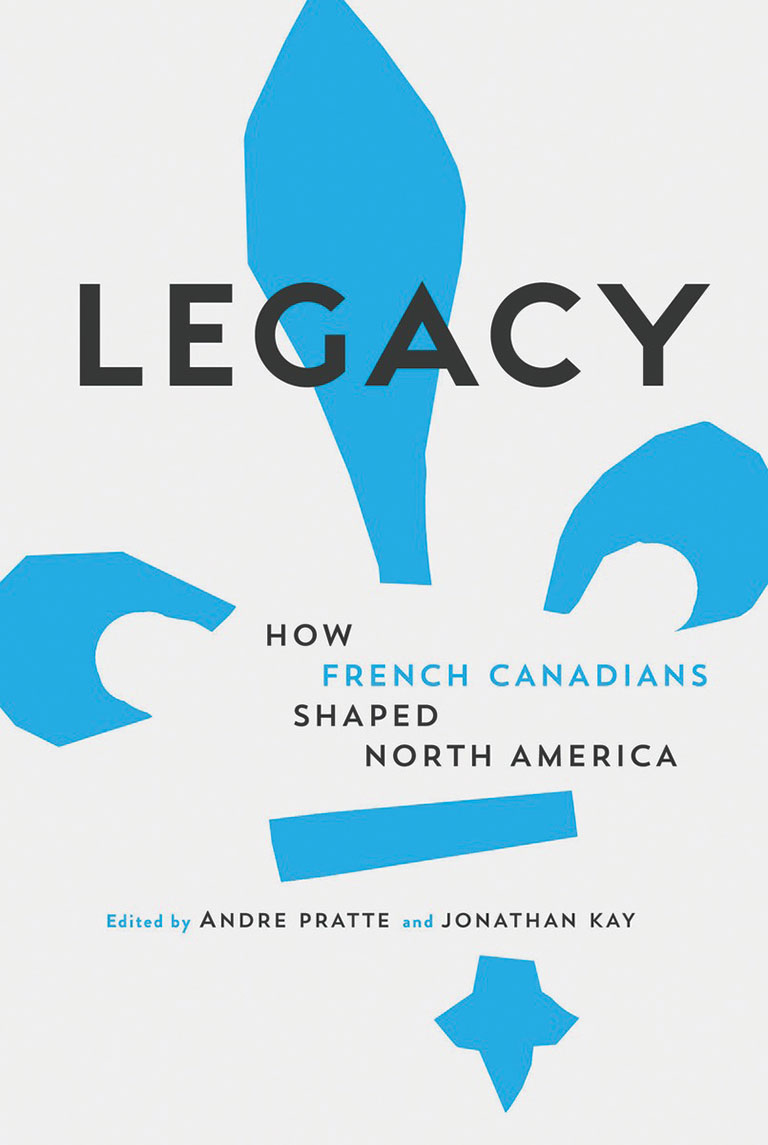Legacy

Legacy: How French Canadians Shaped North America
by André Pratte and Jonathan Kay
McClelland & Stewart
352 pages, $35
This book invites dissent. Why were these thirteen individuals, and not others, chosen for a book of profiles of French Canadians who had “shaped North America”? Why did the editors eschew more prominent figures, such as Wilfrid Laurier or René Lévesque, whose legacies are more evident, and opt for lesserknown examples whose impacts are debatable? And what do they mean by “French Canadians”?
Only Margaret Atwood, in her essay on Manitoba-born Gabrielle Roy, and an essay co-written by Jean Charest and Antoine Dionne-Charest, with a passing mention of Acadians, Métis, and others, acknowledge that Quebecer and French Canadian are not synonymous. Co-editors Jonathan Kay and André Pratte may use the term interchangeably, but this is really a book aimed at introducing readers to Quebecers who made a difference — a worthy goal, but one not accurately reflected in the title.
(A side note: For a book aimed at crosscultural understanding, the lack of credit for the translations is a serious omission. Biographical notes on the writers of the essays are also lacking.)
While all thirteen subjects are important, how they shaped North America is not always argued persuasively. Ken Dryden makes a strong case for Jacques Plante, whose adoption of a goalie mask set dominoes toppling that eventually changed how hockey was played. And Deni Ellis Béchard demonstrates how Jack Kerouac’s idiom — so influential to generations of writers — was rooted in his French-Canadian heritage. But some of the others, while they rose to prominent roles in Quebec society and did remarkable things, did not clearly change their societies.
The anodyne nature of several of the essays may be explained by the book’s purpose, which, judging from Kay’s afterword, is to atone for his Anglo guilt at not immersing himself in French culture while growing up in Montreal. But this makes the collection feel anachronistic, an echo of when liberal-minded English Canadians, inspired by an earlier Trudeau prime minister, earnestly sought to “understand” their francophone fellow citizens. That was half a century ago.
The book is redeemed, however, by a pair of essays on George-Étienne Cartier and Henri Bourassa that form the heart of the collection — and make it a worthy read. Penned by Jean Charest and Lucien Bouchard, respectively, the pieces read like a politico-literary duel: Charest, writing with his son Antoine Dionne-Charest, praises Cartier, John A. Macdonald’s partner in Confederation, while Bouchard sketches the mercurial nationalist Bourassa. The deeper themes of the French-Canadian story — the eternal tension between accommodation and autonomy — play out here.
The two authors, both of whom joined Brian Mulroney’s cabinet in Ottawa, and who later became Quebec premiers on opposing sides of the national question, seem to be writing about themselves: Charest applauds Cartier’s “healthy pragmatism” and defends him against charges of “betrayal,” while Bouchard describes the “fiery” Bourassa’s collision with “the wall that nationalist Quebecers sooner or later confront in Ottawa,” remarking that any politician from the province seeking to promote its interests in a federalist party learns that “they will have to make concessions, through gritted teeth, or else resign.”
In both essays, the Manitoba schools question looms large (it appears in Atwood’s essay, too). One longs for an even better book in which Charest and Bouchard debate it and the other compromises and confrontations that have marked the French fact in Canada.
Themes associated with this article
Advertisement




